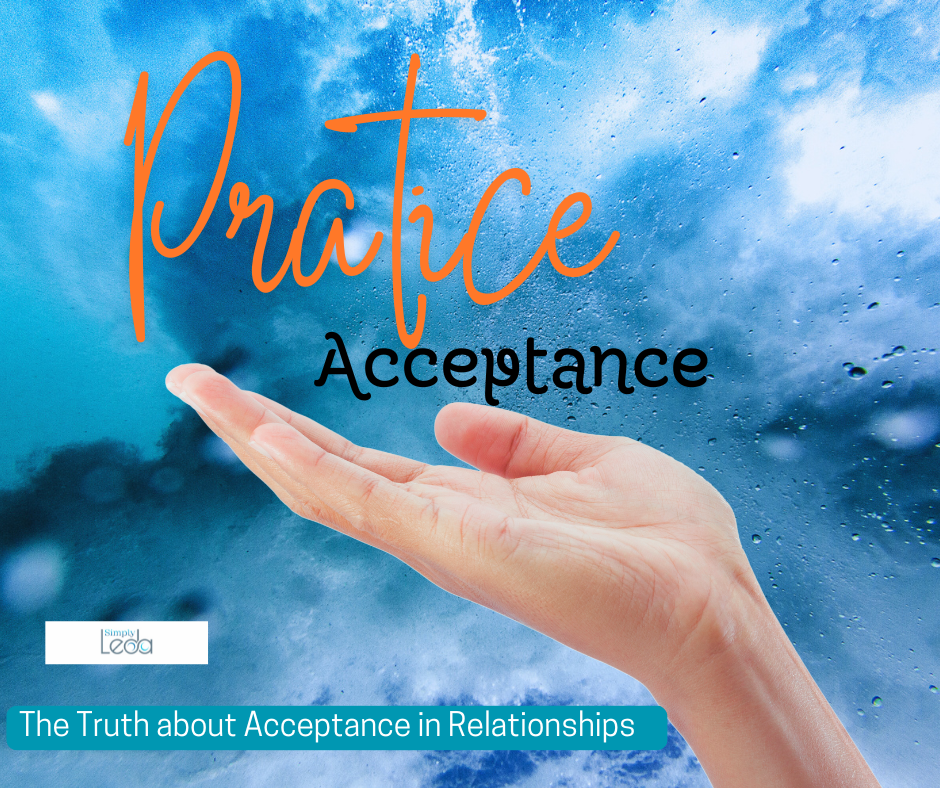
Much clarification is needed when we talk about accepting others. It is always quite easy to accept another person when their behavior agrees and aligns with our own, when our morals and principles align with theirs. The sticking point comes when the other person, whether friend, colleague, family member or romantic interest exhibits behaviors and character traits that do not resonate with our own. Then the question becomes what does it truly mean to accept them as they are?
Here, it’s important to remember that accepting someone as they are does not mean that you are also required to be a part of their life. These are two different things. We are never required to put ourselves in situations where we are hurt, dishonored or disrespected. There is a misconception that acceptance and forgiveness of another, predicates that we continue to subject ourselves to what caused us to move away from them to begin with. This is not true. What it does point to, however, is that we must recognize, instill and hold fast to our own boundaries. We can accept someone with all their faults and shortcomings and still keep strict boundaries for our self-exposure. This is a wonderful exercise and lesson in helping us understand ourselves and the boundaries and exposure we need to set in any given circumstance.
If we feel that our boundaries are being constantly violated, then we may through a state of neutrality “observe and discern” that we need to keep a distance from that individual until such a time when circumstances or their behaviors should potentially shift. And we can do so without being triggered or becoming angry or resentful. If a shift takes place, then it is wise before re-engaging that the issues and hurts are resolved through honesty and transparency and conversely, we must also accept that possible re-engagement with this individual may not be viable, feasible or desirable. This then becomes our individual assessment.
Acceptance allows us to continue to be who we are and the other person who they are, even if we do not agree with their behavior, lifestyle or choices. It means we understand that it is not our job to judge or condemn, nor fix or educate them, unless they ask for guidance. We must trust that Life teaches each one of us the lessons we need to learn.
When we truly learn to love and accept ourselves, we will always do this for another while continuing to honor ourselves.
© Simply Leda | All Rights Reserved
